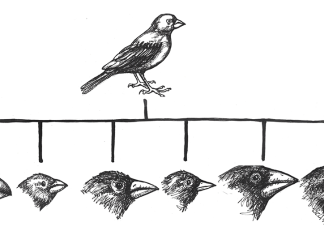The Benefits and Risks of Low-Carb Diets: Understanding the Science Behind This Popular Diet Trend
Low-carb diets have become increasingly popular in recent years. They are touted as helping people to lose weight, reduce health problems, and even prevent diseases. But is there a scientific basis to the claims? In this article, we will explore the health benefits and risks associated with low-carb diets, as well as the current science supporting them.
What Is a Low-Carb Diet?
A low-carb diet is any diet consisting of fewer than 130 grams of carbohydrates per day. This includes popular diets like keto, Atkins, paleo, low-carb Mediterranean, and Intermittent fasting.
Low-carb diets are not new. Before the 1950s, most diets prescribed a low-carb approach, recommending high intake of meat, eggs, and fat, with only occasional grains.
Benefits of Low-Carb Diets
There are several health benefits associated with low-carb diets. These include:
Weight Loss: Low-carb diets can be effective for weight loss in the short-term. Studies show that low-carb diets are more effective at helping people lose weight than other diets, such as low-fat diets. This is because they restrict carbohydrates which can lead to lower appetite and calorie intake.
Improved Cholesterol Levels: A low-carb diet can help to improve cholesterol levels, reducing ‘bad’ LDL cholesterol and increasing ‘good’ HDL cholesterol.
Lower Blood Sugar: Low-carb diets can also help to reduce fasting blood sugar levels, as well as improve overall insulin sensitivity. This is beneficial for people with type II diabetes or metabolic syndrome.
Reduced Inflammation: Low-carb diets can help to reduce systemic inflammation, which is associated with a number of chronic diseases.
Risks of Low-Carb Diets
While there are many potential benefits to be gained from following a low-carb diet, there are also some risks to consider, such as:
Nutrient Deficiencies: A low-carb diet may be low in vitamins and minerals, as well as fiber, due to reduced intake of fruits and vegetables.
Increased Risk for Kidney Stones: A low-carb diet may increase the risk of developing kidney stones as it increases the levels of uric acid in the urine.
Hormonal Imbalance: A low-carb diet may disrupt hormones, leading to adverse effects such as thyroid issues, reproductive issues, and bone loss.
Current Science Supporting Low-Carb Diets
Current research on low-carb diets has shown promise, with several studies finding it to be as effective as other diets for weight loss.
For example, a review of twelve randomized controlled trials found that low-carb diets resulted in significantly more weight loss and decreased hunger levels than other diets.
Another review of 16 studies found that low-carb diets were more effective at improving biomarkers of health, such as cholesterol, triglycerides, and insulin, than low-fat diets.
Finally, a systematic review of 10 studies found that low-carb diets were associated with slightly greater weight loss than other diets, regardless of age, sex, or diet duration.
Low-carb diets can offer a number of health benefits, including weight loss, improved cholesterol levels, lower blood sugar, and reduced inflammation. However, there are potential risks associated with these diets, such as nutrient deficiencies, increased risk of kidney stones, and hormonal imbalances. The current science is supportive of the use of low-carb diets for weight loss and improved health, although further research is needed to evaluate the long-term effects.














